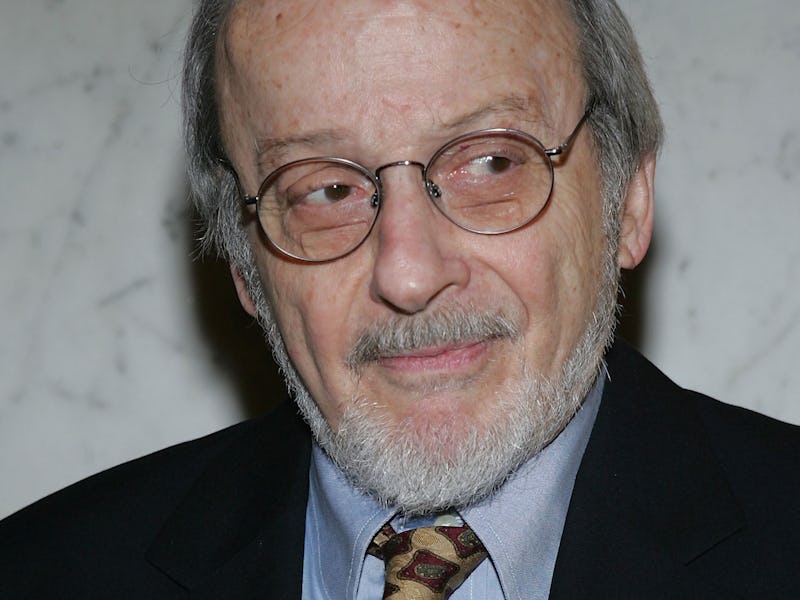E.L. Doctorow's Fiction Embraced America's Messy History
A master of the historical novel has died at 84.

E.L. Doctorow died Tuesday at the age of 84. Born to Belarusian Jewish immigrants in the Bronx — which would later inform the immigration-heavy focus of his novels — he was named after another famous writer; albeit one whose work had a very different tone: Edgar Allan Poe. With historical fiction covering such areas as the Old West and Houdini, Doctorow bridged the gap between the literary and the commercial. You can probably hum a tune from the classic play [Ragtime,](https://en.wikipedia.org/wiki/Ragtime_(musical) but you might not be as familiar with his body of work. Here are some highlights.
1960: Welcome To Hard Times
His debut novel is a Western full of saloons, gunslingers, and bad men — one literally named Bad Man. It centers on a mining town in the Dakota Territory and follows the protagonist as he rises to the occasion by becoming the reluctant mayor of a dying town. It was adapted into a 1967 film of the same name.
The original New York Times review hails it as a “serious Western:”
It is time to acknowledge that the “serious Western” has established itself firmly on a sub-genre of fiction. “Welcome to Hard Times” is an exfoliation on a quite sturdy branch… His book is taut and dramatic, exciting and successfully symbolic.
1971: The Book Of Daniel
This novel, which was adapted into a 1983 film called Daniel, is the fictionalized account of the life of Daniel, the son of Ethel and Julius Rosenberg, who were famously executed for treason and espionage in 1953. The original New York Times review says of the novel,
One contemplates most novels based on controversial public happenings with a sinking heart: fictionalization tends to trivialize such events: the public record weighs like sandbags on the imagination. But Mr. Doctorow has turned such liabilities into assets. He freely acknowledges the looming presence of the Rosenberg Case by building a high-tension bridge between reality and fiction.
1975: Ragtime
Doctorow’s most famous work was also turned into a film in 1981 and a musical in 1996.
In Doctorow’s version of melting-pot New York, his fictional characters rub elbows with the likes of Houdini, Emma Goldman, and Booker T. Washington. He’ll be remembered for breathing life into history while fearlessly tackling racism and xenophobia and constantly experimenting with narrative conventions.
For more, see his obituary in the Times and The Guardian. For his own words, watch his 2013 acceptance speech for the Medal for Distinguished Contribution to American Letters: